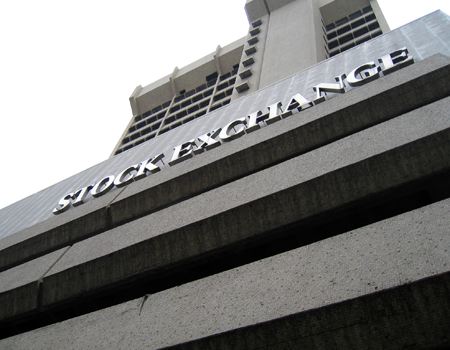Since the global oil price crash in 2014, Nigeria has been one of the hardest-hit economies due to its overdependence on oil as its main source of revenue. China’s economic slowdown, as well as the United States’ rate hike, also affected its economy adversely. As a result, Nigeria’s economic growth has declined dramatically, with its currency falling to an all-time low. Investors are pulling out regularly as most of them are scared to leave their investments in the country, thanks to new monetary policies. The Central Bank of Nigeria put in stringent policies to help save the naira from falling but they backfired.
However, it looks like the story is changing, as the CBN, which once showed that its decisions were not independent of the federal government, seems to be taking a new turn. It is still uncertain if the CBN will be able to sustain some of its recent policies, which are geared towards saving the naira from falling.
Below is the Ventures Africa Weekly Economic Index, for the week ending 17th of March 2017. This economic index gives you a glimpse into the recent activities in Nigeria’s economy as well as changes that could affect the economy:
What happened to Nigeria’s inflation rate?

According to the data released by the National Bureau of Statistics, the inflation rate dropped in February. Consumer Price Index (CPI), which is the measure of inflation, dropped 0.94 percentage points from 18.72 percent recorded in January 2017 to 18.78 percent in February 2017. This is the first time in 15 months that Nigeria’s inflation rate will decline.
The Food Index increased by 18.53 percent (year-on-year) in February, up 0.71 percent points from the rate recorded in January (17.82 percent). This rise was driven by an increase in the prices of bread, cereals, meat, fish, potatoes, yam and other tubers and wine. The lowest increase in food prices year-on-year was recorded by soft drinks, coffee, tea and cocoa.
During the month, the highest year-on-year increases were seen in electricity, liquid and solid fuels, fuels and lubricants for personal transport equipment, clothing materials, other articles of clothing and clothing accessories and book and stationeries.
What did the CBN say about the naira?

The Governor of the Central Bank of Nigeria (CBN), Godwin Emefiele, at the Vanguard Newspaper Awards, where he was recognized as the “Personality of the Year, said that the reason the apex bank is opposed to the idea of fully floating the naira is because adopting such policy could hurt the nation’s currency.
Emefiele noted the gap between the interbank and parallel market exchange rates and said that a purchasing power parity analysis would confirm that the naira is not as weak as the rate in the parallel market suggests.
“It does appear that there is no basis in our economic fundamentals to support the prevailing exchange rate at the parallel market. The only logical explanation for the high rates in that market, therefore, is that a lot of illegal and criminal activities are being carried out there. I obviously cannot be of help to people or businesses that are into speculative FX demand,” said the Central Bank Governor.
How did the naira fare?

The naira appreciated against the dollar at the parallel market to 448 naira/$ on Friday 17th March 2017, up from 459 naira/$ on Monday 13th March 2017. The Central Bank of Nigeria (CBN) on Thursday cleared more retail currency bureaux to take part in a weekly dollar sale to boost liquidity and support the naira. CBN cleared 3,124 bureaux for last week’s $25 million auction, which was to be sold by international money transfer firm, Travelex at N381/$.
Is the new CBN Forex policy working? 
The Managing Director of Fidelity Bank, Mr. Nnamdi Okonkwo, who spoke at a forum in Lagos last week said that banks had since cleared the backlog of school fees, PTA, BTA and medicals after the CBN channelled huge dollar disbursements to the market.
“Banks are united with the CBN’s new forex measures. In fact, the meeting we had before the announcement was made lasted for almost five hours. The measures have been very successful and most banks have cleared the demand backlog for PTA,” said Okonkwo.
How low is the external reserve?

Data from the website of the Central Bank of Nigeria reveals that as of March 16th, 2017, Nigeria’s external reserve increased by $10.84 million to $30.30 billion from $30.19 billion recorded on March 13th, 2017.
Nigeria Stock Market

According to the recent data released by the Nigerian Stock Exchange, as of 17th March 2017, the market closed trading on a positive note as the all share index increased 1.64percent from the previous week ending 17th March 2017. Market capitalization at the close of trading was 8.88 trillion naira. This represents a 1.64 percent increase in the all share index from the previous week.
Top five price Gainers and Decliners the week under review:
Top five price Gainers
- Diamond Bank Plc
- United Capital Plc
- Continental Reinsurance Plc
- Africa Prudential Registrars Plc
- United Bank For Africa Plc
Top five price Decliners
- E.M Insurance Co (Nig) Plc.
- Up Bottling Comp. Plc.
- Nigerian Aviation Handling Company Plc
- Neimeth International Pharmaceuticals Plc
- Ashaka Cem Plc
Dividends announced so far in 2017

Tracking companies that have announced their dividends are very important for the country as it affects the share price of the company. This also enables people to know if they are eligible to collect the dividend, when it will be approved and when it will be paid. So far the companies that have announced the full year reports are Vitafoam Plc, Greif Nigeria Plc, United Capital, Nigerian Breweries, Transcorp Hotels Plc, Africa Prudential, Zenith Bank, Dangote Cement, Nestle Nigeria, Access Bank and Total Nigeria Plc.








